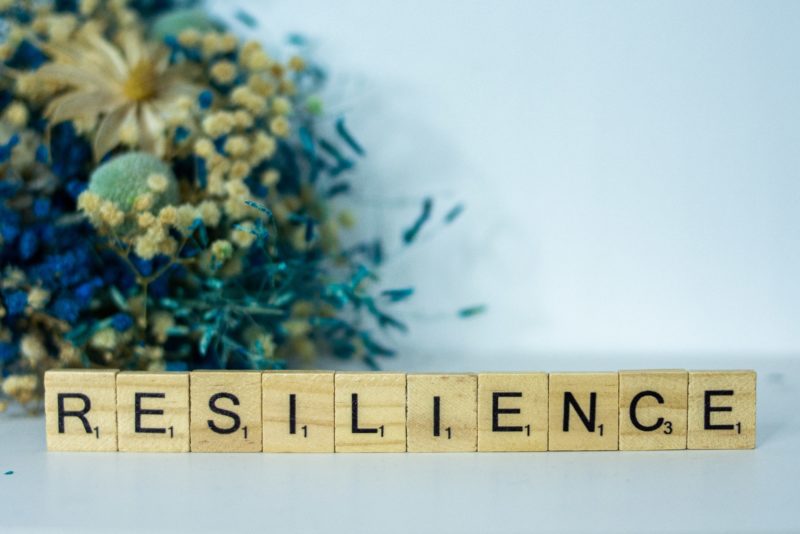Resiliency is a building block toward a positive outlook on life and work. It is a lot like having insurance: if you wait until you actually need it before you acquire it then you have waited too late.
Resiliency, or “grit” as it is often called, is a fundamental characteristic to develop for one to thrive in the workplace.
We should not be surprised to learn that life has its hard moments. Sometimes those hard moments turn into hard seasons. Most of us can take a bad break or two but when the bad breaks seem to compound and escalate then we can quickly find ourselves in a bad place. Let me be clear, clinical anxiety and depression are medical conditions and need to be treated by professionals. What I’m referring to here is navigating the challenging times all of us will face short of a true medical condition.
So, how does one prepare oneself for the hard times to come?
In many ways it is the same principles of simple investment we use every day to help us prepare for other eventualities. How do you save up for a big purchase? You start putting a little aside regularly. How do you prepare to retire some day? In the same way, you put back a little with regular practice over time so that you eventually have a reserve big enough to draw from when you need it. That is how grit works as well. It is tempting to think we build this by the sheer determination of powering through a tough situation. While there is some truth buried deeply in this approach the better answer is one’s collective grit comes from an accumulation of life experiences of challenges in many sizes. How one endures and handles small disappointments and obstacles becomes the building blocks (as well as indicators) of how one will handle larger challenges. This ultimately defines one’s character.
Here are some everyday types of investments we can all be making that will serve us well when the hard times hit.
- Understand your “Joy Zone.” All jobs have parts of them that are not our favorite thing to do. However, most people can find certain types of tasks that bring them more satisfaction than others do. This might stem from a task being more connected to skills we like to use, being more connected to a purpose that energizes us, or even more connected to working with team members we like. Pay attention to what brings you joy in your work and focus on how you can invest more time and energy that way. You can even talk to your supervisor and if these are areas that move the work forward maybe your role can be adapted to get you more of these tasks. Having a good understanding of what brings joy helps balance those things that do not. It can help you focus on knocking these out so that you can get to the things that bring you more energy. A strong awareness of what you enjoy doing and a focus on it often helps mitigate the dread of tasks we don’t like and serves to help build a resiliency to our outlooks. It helps us work through the less desirable to get to the more desirable.
- Take Breaks to Refocus. People are wired in different ways. Some thrive in long periods of deep focus and others need to break tasks into a variety of smaller bites to tackle them effectively. In either approach being proactive to take strategic and timely breaks should serve to bring some energy and resilience to you. Our minds often need a quick break and reboot after focus. This can come from a short walk to the restroom or a quick step outside for fresh air. Our energy levels, and sometimes will power, can be slowly drained over time if we continually “empty the reserves” every day mentally and don’t do our minds (and legs!) a favor by getting up with some regularity. An ongoing habit of disregarding this and continually pushing our mental limits with tasks that don’t energize us will ebb our resiliency. Take those breaks and better yet, grab a friend to throw in some conversation. You will find yourself more revitalized and ready to take on the next round of tasks.
- Have a “future thinking” mindset. A fact of life most all of us deal with is we, to degrees, have to work our way to the jobs we desire. In the meantime, we usually have roles that are putting us on a path to what we want to someday do or have to take any job to pay our bills. The key to building resiliency in these roles is to keep your mind on how this role moves you toward the ultimate goal. How might this role refine or teach skills or competencies that you will someday use? What can you learn from the supervisor you don’t particularly respect in regard to what you will not do someday in a role like theirs? There are always lessons to be learned and adopting a mentality that it is a “learning and acquiring skills” season for you in regard to shaping you for will help give you a resiliency to keep going until the right opportunity comes along.
We have to embrace the fact not every season of life is filled with the roles and tasks we might want to most be doing. What we can’t lose sight of in these seasons is the refining opportunities that exist. We have to endure some challenging seasons for the very fact that life will invariably force challenging seasons upon us.
This is why resiliency is so important. Someday life is going to require it from all of us so learning to adapt and prepare for it is key to a flourishing life.
